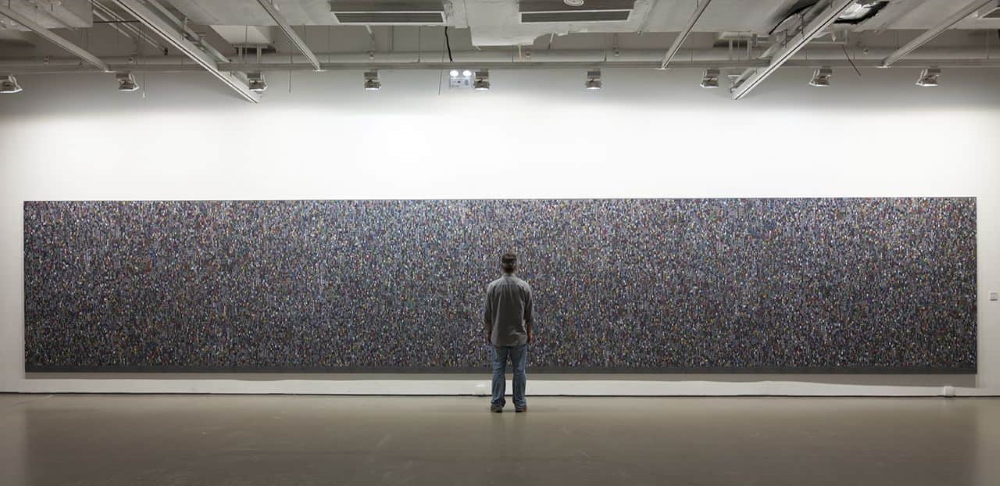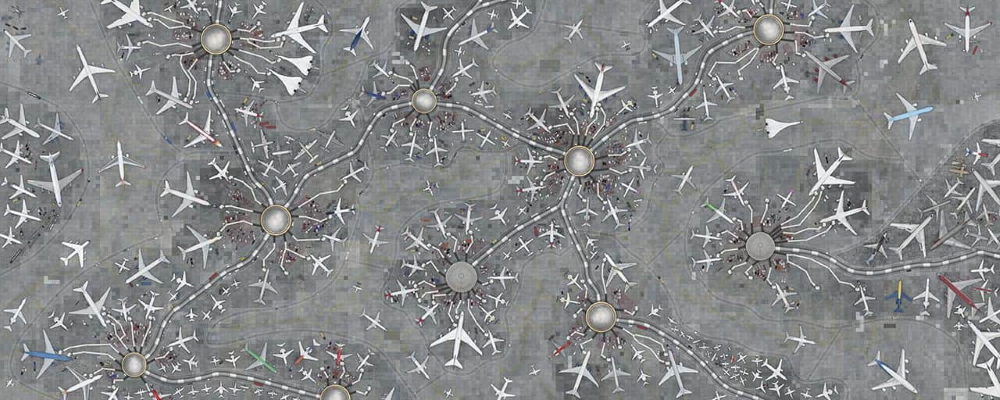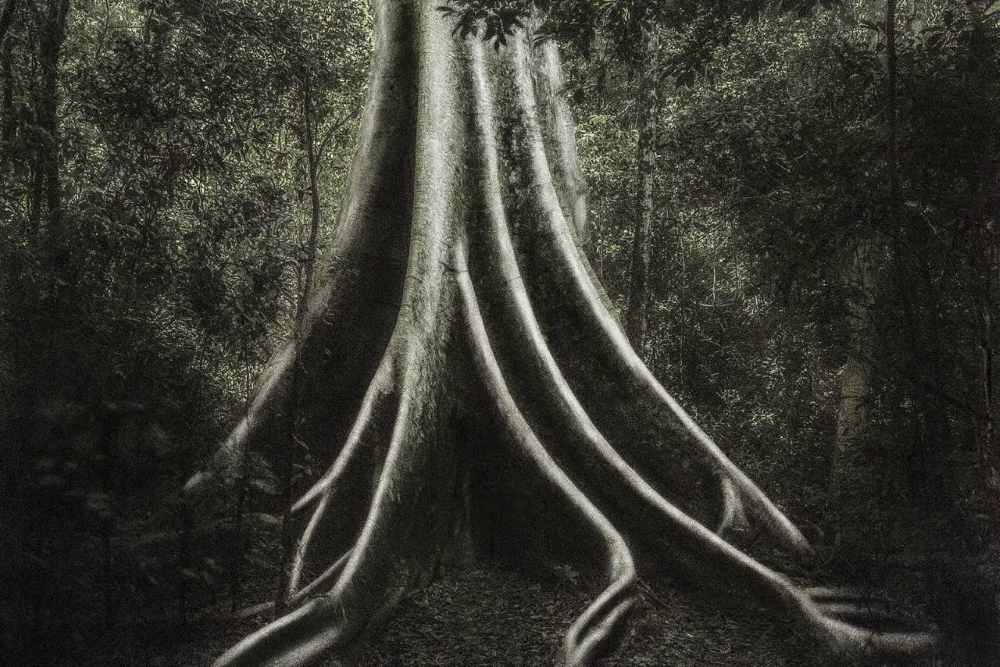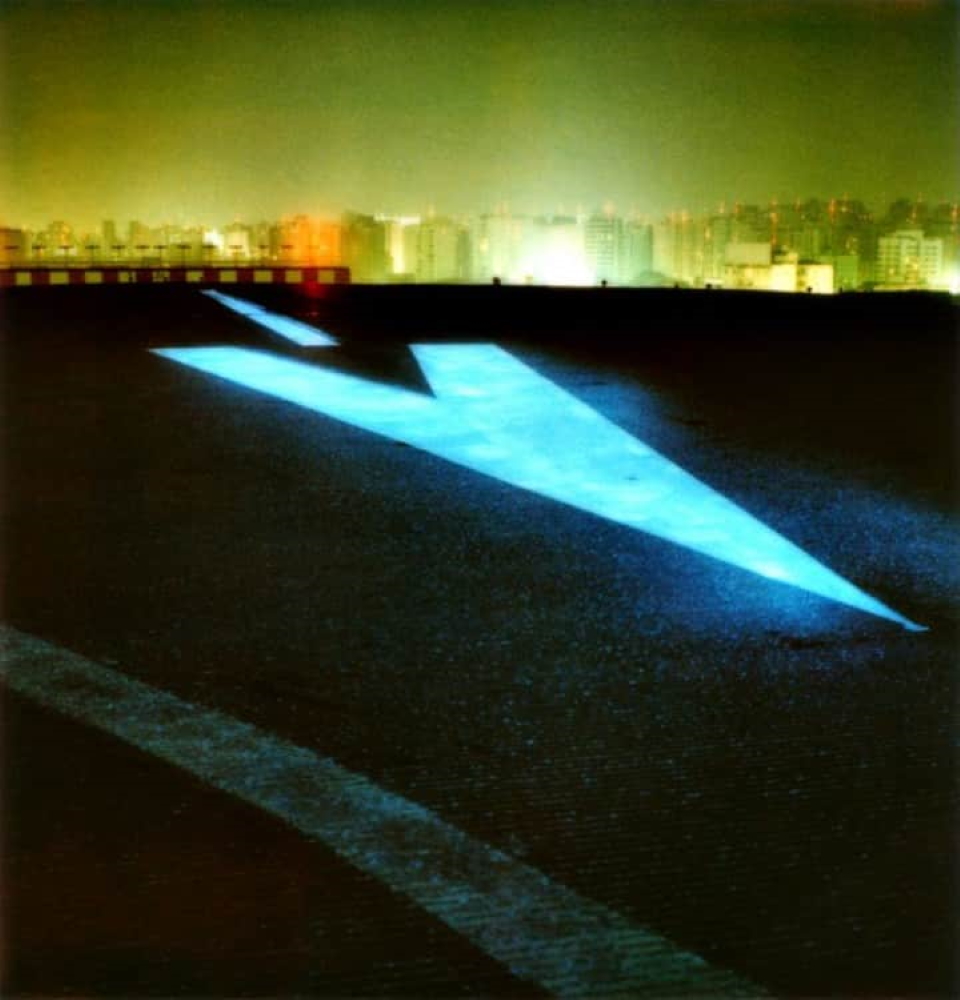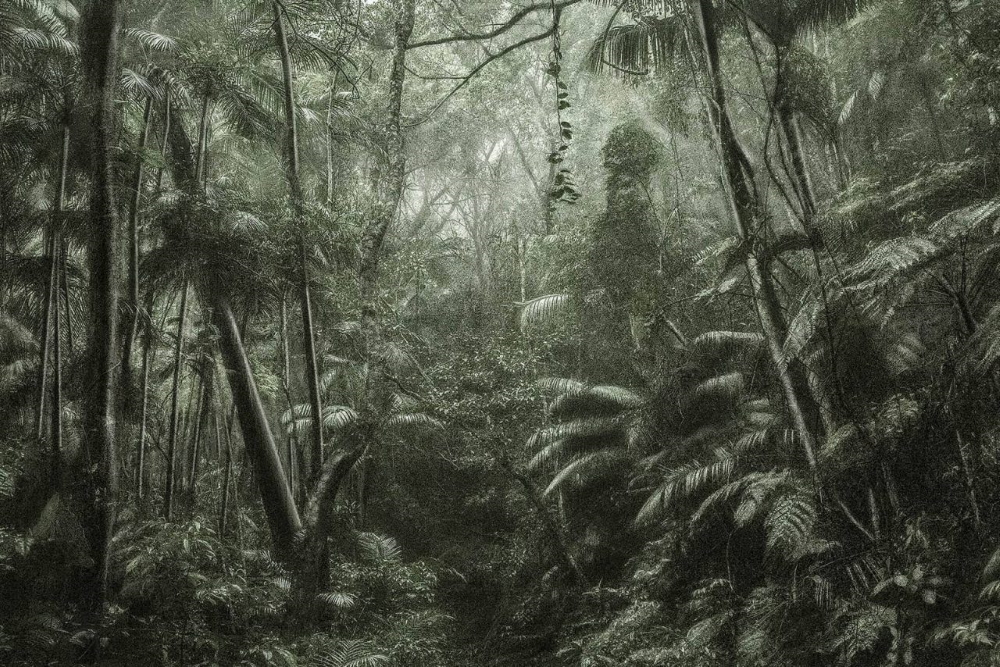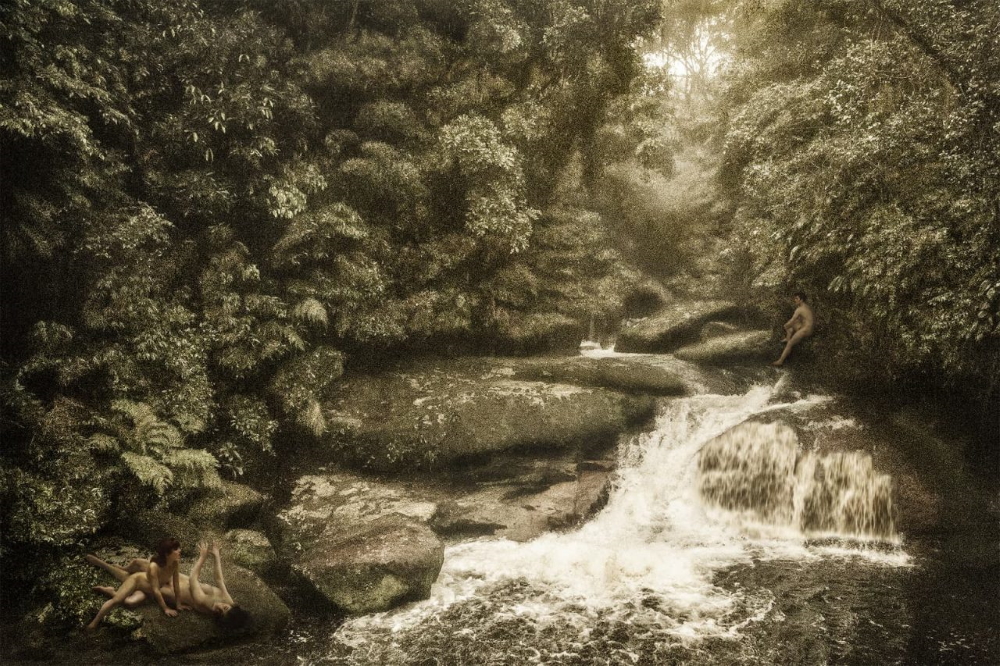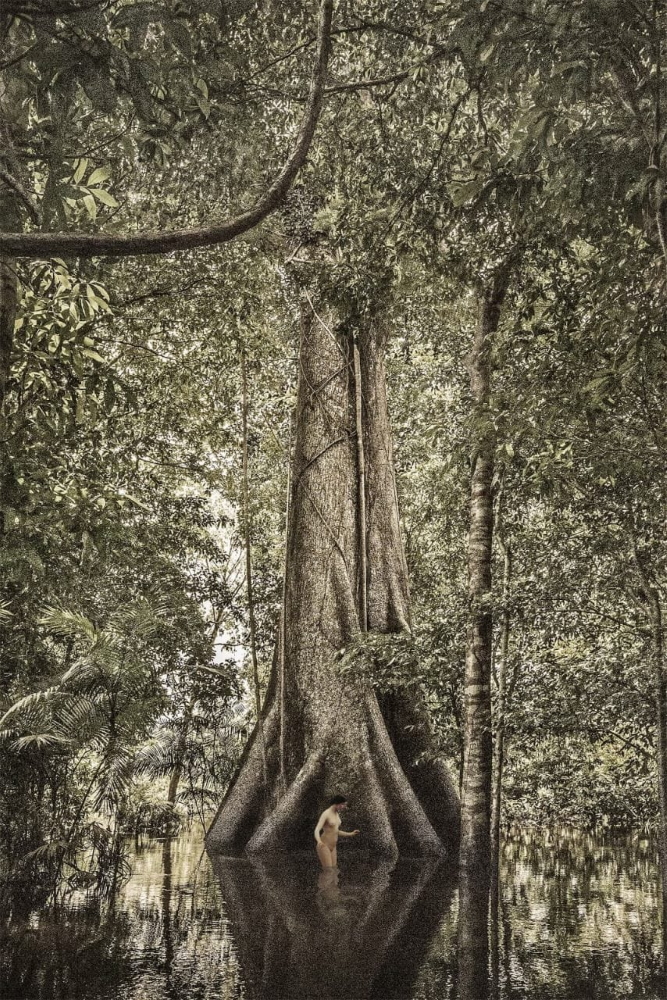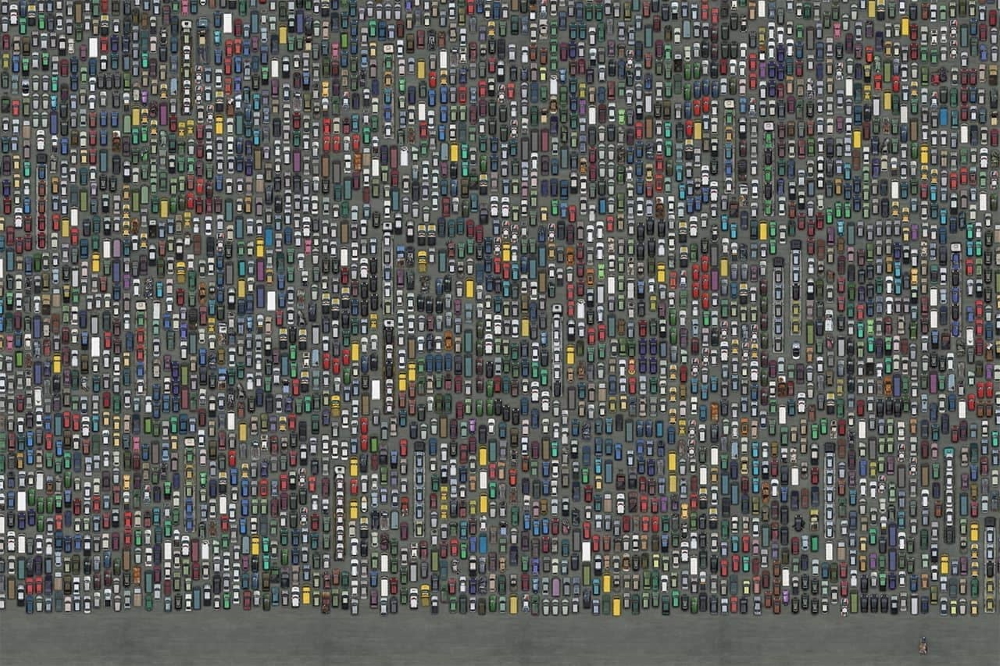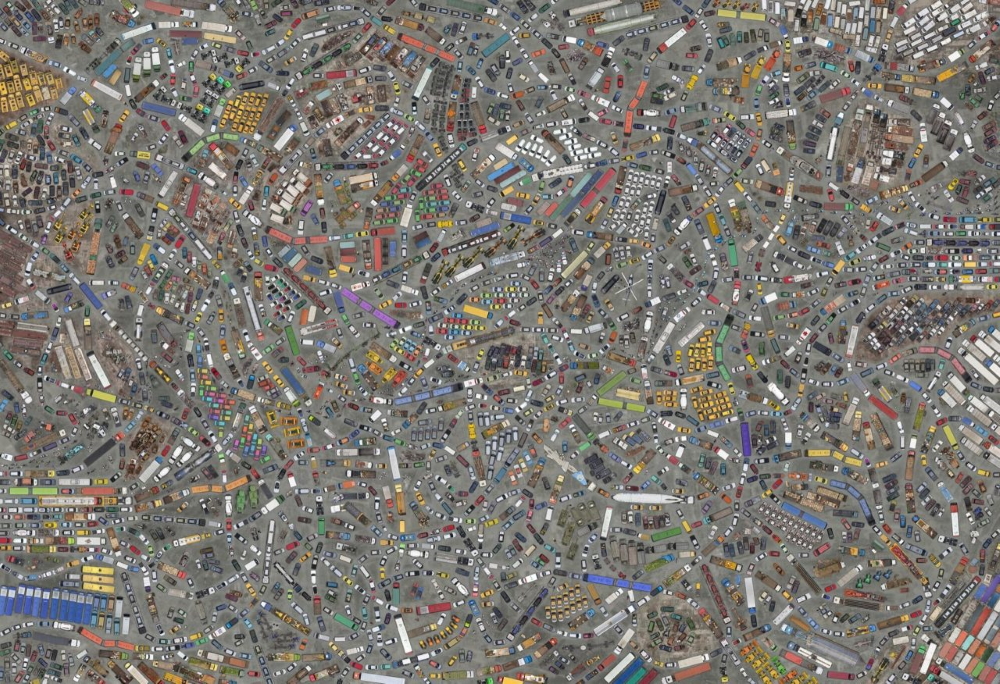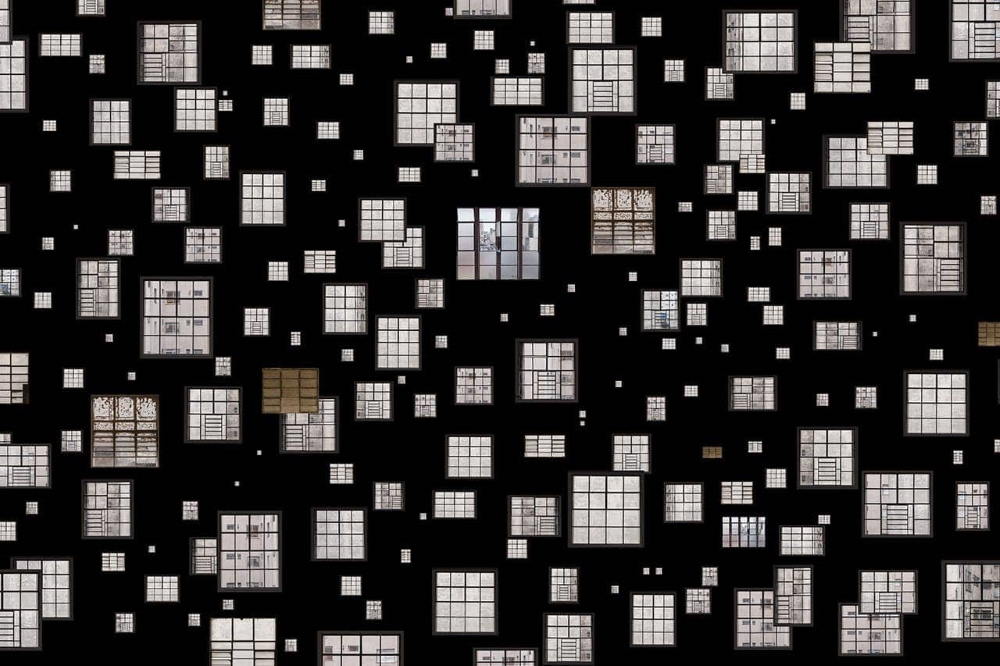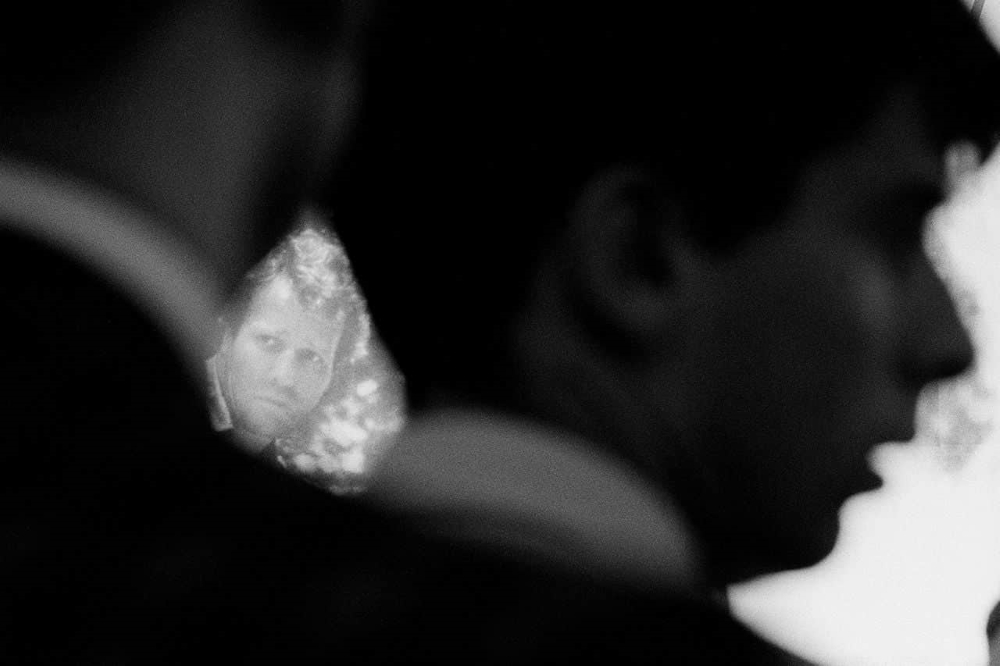Cássio Vasconcellos
photographer / artist / environmental activist
Brazil
The clutter of 250 planes criss-crossing the tarmac, captured from the air, looks like a surreal painting. This apocalyptic vision of an ultra-modern world dominated by machines versus monochrome, picturesque images of the Amazon rainforest’s lush vegetation and its majestic beauty. A constructed version of reality and an imaginatively recorded reality – it’s these apparent contrasts that this multi-awarded photographer juggles between. But because of “the visual transition into another time period one responds to the other basically” (festival-lagacilly-baden.photo). Nevertheless: “His fictional imagery, which derives from elements of reality, blurs the boundaries of photography as a genre”, analyzes nararoesler.art, “creating, instead, an imaginary iconographic vocabulary geared towards a critique of contemporary society.”
Cássio Vasconcellos
photographer / artist / environmental activist
Brazil
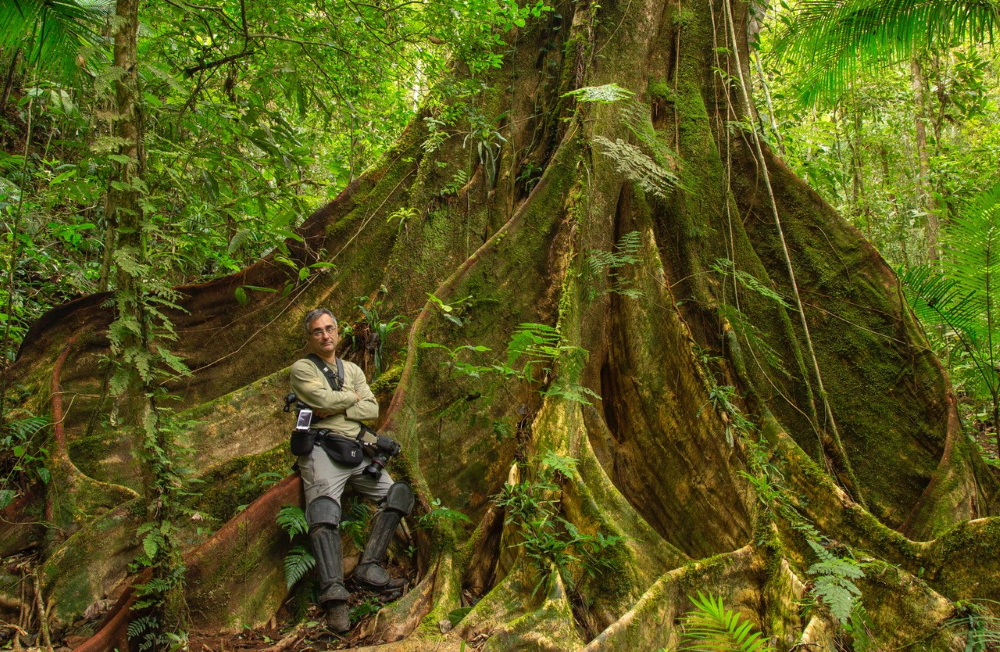
Over 200 exhibitions in more than twenty countries! Cássio Vasconcellos and his impressive works are in high demand. With ‚Nocturnes São Paulo‘ he not only won the Paulista Association of Art Critics award (APCA – 2002) for best photography exhibition of the year, but excerpts of it were included in “The World Atlas of Street Photography” (Thames & Hudson, England / Yale University Press, USA) too. Another one that’s in the focus: ‚A picturesque voyage through Brazil’. That series of photographs in an almost scientific precision made between 2015 and 2019 shows a natural virgin world from another era whose extinction is currently under way. The continuation was shot in the magical beauty of this tropical forest landscape too and called ‘Dryads & Fauns’. Like its predecessor it draws inspiration from a painting style made famous by European traveling artists from the 19th century like Rugendas or Debret.
The man from São Paulo (* 1965) who specializes in aerial and fine art photography, began his career in 1981. After having studied photography at Imagem-Ação school in his hometown Señor Vasconcellos started a photojournalist career. In parallel with reports and advertising orders, he conducted personal artistic work and revealed in retrospect: “When I began, I was very much inspired by Henri Cartier-Bresson, André Kertész, Man Ray, Robert Frank, Joan Fonctuberta, José Oiticica Filho and Geraldo de Barros.”
By owning a helicopter license since 1996, the specialization in aerial photography was obvious. The different perspective allowed the self-proclaimed “air junkie” who likes switching styles to tackle new points of view. A possibility that also meant an additional different artistic approach: taking hundreds of aerial pictures of 50.000 cars neatly placed side by side for example and rearranging them to a complete overview in a series called Collectives. “The translation of the chaos of our society by ordering it thanks to aerial views with radical geometries” (gadcollection.com) can take up to 800 hours of work to produce a result. Viewed from a distance these huge photo prints with their countless repetitions of single shots look like very simple patterns of a modern painting. A closer look indeed reveals the object in detail precisely. The amazing effect: these startling pictures challenge the viewer’s perception of reality!
This Brazilian photographer has over a dozen books published - among them ‘Aeroporto’ (Ed. Madalena, 2016), ‘Aéreas do Brasil’ (B.E.I., 2014) and ‘Noturnos São Paulo’ (2002). The artist’s visual compositions are in Brazil’s main private collections as well in museums such as the MASP – Museu de Arte de São Paulo (São Paulo, Brazil), and abroad in the Bibliothèque Nationale (Paris, France) and the Museum of Fine Arts (MFAH, Houston, US).
Cássio Vasconcellos lives and works in São Paulo (Brazil).
Interview December 2022
Activism as an artistic style: visualising the surreal in reality
INTUITION/IMAGINATION
How does intuition present itself to you – in form of a suspicious impression, a spontaneous visualisation or whatever - maybe in dreams?
Intuition is fundamental for me, it appears when you least expect it, and it is my great guide in my work. If there is any rational doubt along the way, I already know, I must follow my intuition.
Will any ideas be written down immediately and archived?
Some ideas are written down, but many are not necessary as they are so strong that they remain in my thoughts.
?: How do you come up with good or extraordinary ideas?
I believe that good ideas come to us. If we keep trying to come up with good or creative ideas, they won't happen. We do need to keep an open mind to receive. Ideas are actually out there, those who have ideas are precisely those who are open to receiving them, and this can happen in several ways.
Are great ideas based on intuition and do they reveal themselves in a kind of clear as well complete version that just has to be realized? Or is it endless trials and errors (after the first spark) that result in constant developments up until the final result?
A little bit of both for me. The great idea comes from intuition, in general, it's very strong, it's a feeling that's difficult to explain in words but I'm sure when I have it, of course, this idea evolves throughout the process. This is all very pleasant, starting a project with a certainty that comes from the unconscious and over time improving to arrive at the final result that matches the initial feeling.
What if there is a deadline, but no intuition? Does the first fuel the latter maybe?
I don't think the deadline itself feeds intuition, although it can serve as a challenge.
INSPIRATION
What inspires you and how do you stimulate this special form of imaginativeness?
What inspires me the most is the world we live in, the things around us, the people, the cities, etc. It is very important to always be attentive, to be very observant, and curious, to seek to know different things that are not part of our daily lives, and to have life experiences as varied as possible. Taking a good walk, being alone for a few moments, and letting your thoughts "loose" is also essential. And of course, seeing other quality artistic creations is always encouraging, whether in music, cinema, visual arts, fashion, etc.
How do you separate the good from the bad and which ideas are worthwhile to be explored further or whether one idea has the potential of being outstanding really?
The ideas that are most worth exploring are precisely those where intuition speaks louder when I have a feeling of certainty but at the same time do not have a rational explanation for it. For me, rational thinking about a job always comes along in the process, never before. In the beginning, always intuition.
Has it to appeal to you primarily or is its commercial potential an essential factor?
The commercial potential can never be a priority because it is very difficult to know what will work or not commercially. The main factor for me is always intuition, when the idea of work comes to me in a very strong way, this is what I follow and it's something I have to do, it's part of my creative process and my trajectory, regardless of the commercial result.
Do you revisit old ideas or check what colleagues/competitors are up to at times?
I revisit old ideas a lot, it's very important. Old ideas can be seen in a different light over time. I follow the work of other artists when I visit exhibitions, but I'm not looking to see what others are doing at the moment.
CREATIVITY
Which time/place/environment suits your creative work process the best (tranquillity or pressure) and which path do you take from theory/idea to creation?
I adapt best to a quiet environment to work in, and one that can be reasonably secluded.
What is better in the realization process: speed and force creativity i.e. grasp the magic of the moment, or a slow, ripening process for implementation/elaboration?
I prefer a slower process and one that I can evolve along the creative process.
If problems occur during creativity or one’s stuck even, how can these be solved?
When a problem appears, I keep trying and experimenting with new processes and new techniques until I reach the result that most closely matches my initial intuition. It is nothing that is written in manuals, but rather a very personal quest to achieve a unique result. And I always am receptive to the chance, which is one of the biggest contributors to the creative process. Wonderful things happen when you least expect it, and sometimes something that at first may seem like something wrong can actually be the solution to keep going.
How important are self-doubt and criticism (by others) during such a process i.e. is it better to be creative on your own, only trust your own instincts, or in a team?
When a job is in progress, I tend to hear opinions only from very few people that I trust. I listen carefully and reflect on any suggestions or criticisms, I may even make any occasional adjustments to the work, but the final word will always be my intuition. I've learned to respect my intuition more than anyone else's opinion.
Should a creative always remain true to him-/herself including taking risks & going against the flow or must one, for reasons of (commercial) survival, make concessions to the demands of the market, the wishes of clients and the audience’s expectations?
I think that the creative person has to follow his own path, which does not prevent him from doing any commercial work, as long as it is within his artistic lines.
How is innovation still possible if one has established a distinctive style and, just in case, is it good to be ahead of one’s time even one hazards not being understood?
I don't think I have a defined style, what I do is trying new languages and technics within each new series.
When does the time come to end the creative process, to be content and set the final result free - or is it work-in-progress with an endless possibility of improvement?
Each work has its different time to finish, some are longer, others very short. It depends on each one, I can't specify either by number of images or by time of work. For example, I have a series of seven images that I took in five days and I consider the work finished, another one I've been doing for eight years, I have more than 100 images and I still don't know when it ends.
In case of failure or - worse - a creativity crisis how do you get out of such a hole?
Crises are part of the creative process, I think the best thing to do is keep trying and not get too worried.
SUCCESS
Should/can one resist the temptation to recycle a ‘formula’ one’s successful with?
I think every artist should be aware of repetitions, as it is very tempting to continue something that is working. It is often difficult to know when to stop.
Is it desirable to create the ultimate/timeless work, but doesn’t “top of the ladder” bring up the question of “what’s next?” i.e. isn’t such a personal peak “the end”?
I think a creative artist never thinks about doing his last job, but he's always thinking about his next job, which is what motivates us and keeps the wheel going. Thinking about the last job is as if the artist wanted to retire, something that doesn't happen, I think every artist's dream is to continue working until the end of his life.
MY FAVORITE WORK:
The photographs from the "Collectives" series I really like, they are images created from thousands of aerial photos that I have in my collection. In this series I talk about the issues of our era, such as consumption, discards, space, excess. And they symbolize the combination of two passions that I have in life, which is photography and helicopter flights.
